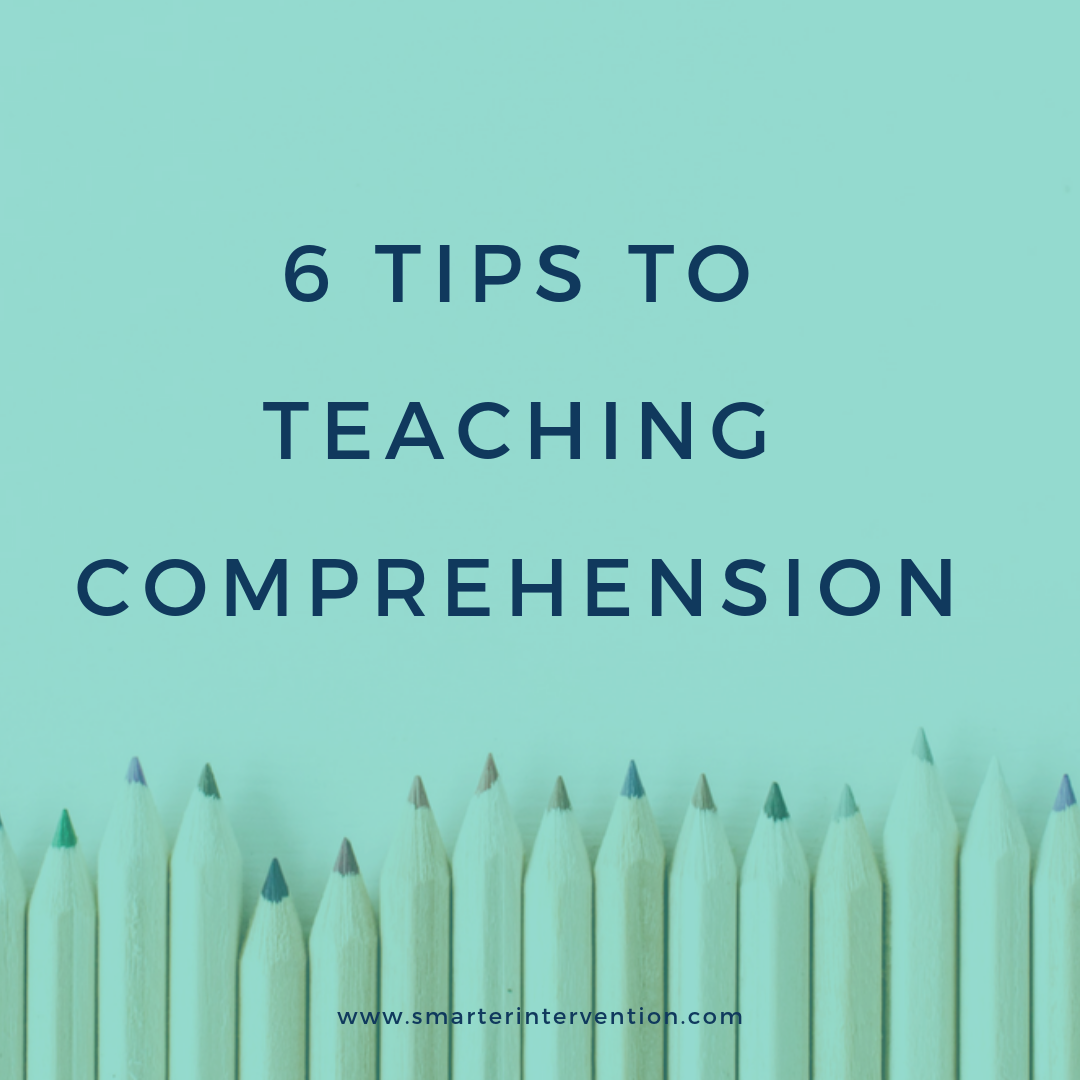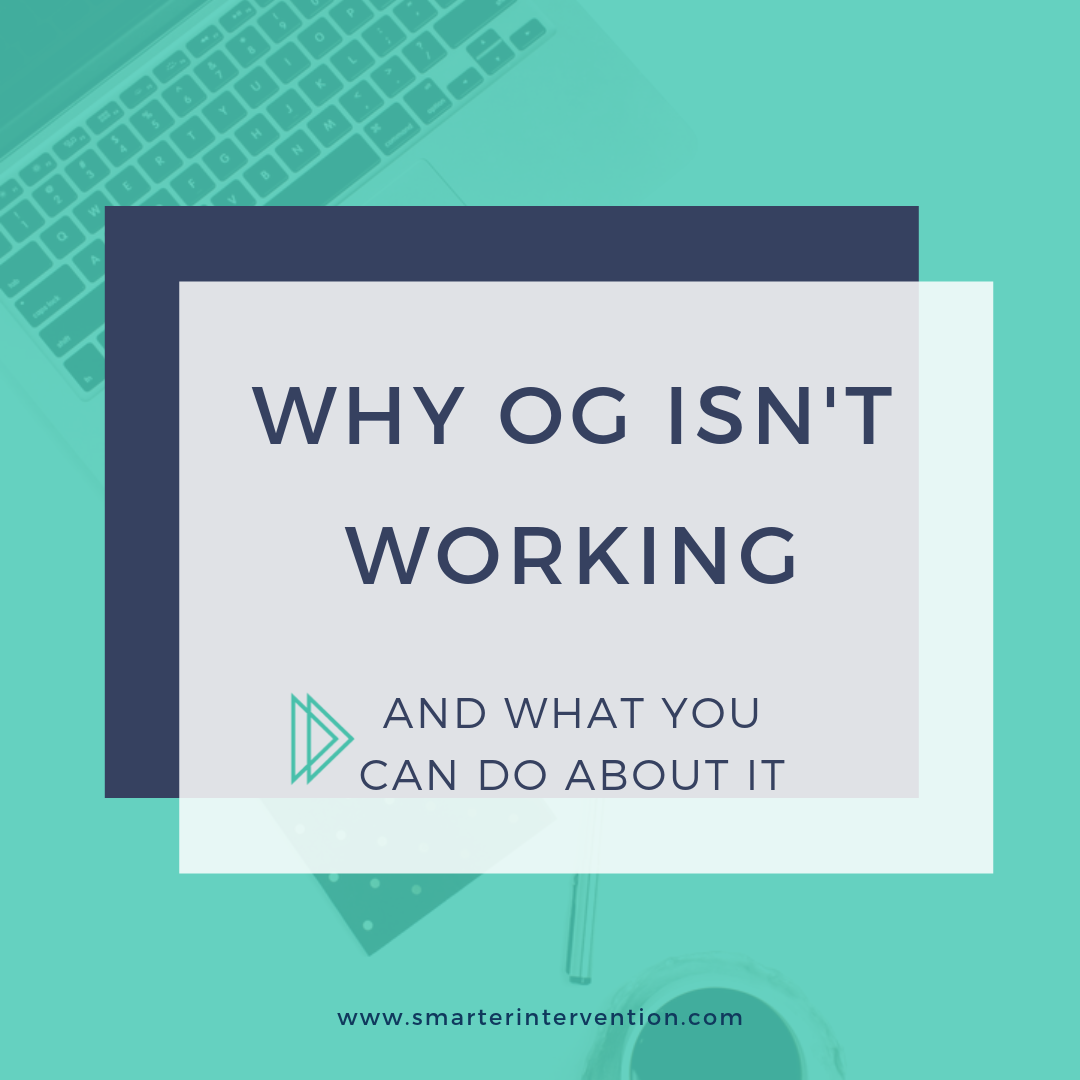Science-based literacy resources and articles
for families, educators and schools
Search by Category:
Categories
- Advocacy
- Business
- Comprehension
- Data Tracking
- Differentiation
- Dyslexia
- Evaluation and Assessment
- Executive Functioning
- Games & Activities
- Helping My Child At Home
- IEP/504 Plan
- Lesson Planning
- Math
- Online Intervention
- Organization
- Parents
- Phonics
- Phonological Awareness
- Reading Comprehension
- Reading Fluency
- Research
- SLP
- Spelling
- Vocabulary
- Writing
6 Tips to Teaching Comprehension
Discover six explicit strategies for teaching comprehension effectively to struggling readers. From creating mental movies to predicting outcomes, explore concrete methods to enhance understanding. Learn how to scaffold comprehension skills and foster metacognition for lasting comprehension success!
5 Questions to Ask in Every Read Aloud!
Explore effective comprehension strategies for beginner readers. Learn how to engage young learners with interactive reading using authentic literature. Discover key questions to enhance comprehension skills: What, Why, How, Predictions, and Moral of the Story. Foster early metacognitive skills and promote a love for reading!
How Do I Get Help From the School?
Now that school is back in session, we are getting this question quite frequently. There is a long answer (which we will begin to get into) but the short answer is that it is complicated but not impossible to get help for your struggling student from the school if you know the right questions to ask.
We wanted to walk you through the steps of getting the help you know that your child so desperately needs. Because this can be a complicated process we decided to break it down in the same way we break tasks down for our students.
What To Do When Spelling Rules Don't Stick
So we know that teaching students spelling rules in a systematic and cumulative (organized and building on itself) approach is the best way to make meaningful spelling gains. However, even with the best instruction we often see skills fall apart when they need to be applied at a higher level.
When should a student take responsibility for their learning?
Empower students with learning disabilities to become independent learners! Explore the journey of developing intrinsic motivation and building positive relationships. Unlock the potential for self-discovery, embracing unique learning styles, and fostering strengths. Middle school becomes a crucial phase for cultivating skills that extend beyond interventions, paving the way for a lifetime of confident, independent learning. Dive into the transformative approach advocated by Barbara McCombs to create a supportive learning environment.
Why Can't My Child Follow Directions?
Parents and teachers often mention that it is hard for their dyslexic child or student to follow directions. There are many possible reasons for this and causes can overlap.
The most common reason could be a weakness in one or more learning micro-skills.
Micro-skills are the foundation of learning. We tend to think of intelligence as one specific thing.
Why SLPs are Uniquely Qualified to Support Students with Dyslexia
Discover why Speech-Language Pathologists (SLPs) are ideal for dyslexia support! Explore how SLPs excel in phonology, sound-symbol knowledge, morphology, syntax, and semantics—essential elements of strong reading intervention. Join the team in empowering struggling readers!
Why Are We Waiting? ... Providing High-Quality Intervention Before They Fail
Discover the importance of early intervention for dyslexia. Learn how identifying signs in preschoolers can lead to life-changing outcomes. Early support can transform struggles into successes, paving the way for improved reading and academic confidence.
One Major Reason Your Reading Intervention May Not Be Working
Discover the key to unlocking consistent growth in reading intervention: engagement. Dive into creative strategies to make learning exciting, turning dry material into dynamic games. Move beyond traditional worksheets and explore interactive methods that keep students connected and excited about learning!
4 Steps to Evidence-Based Decoding Instruction
There is a lot to providing high quality reading instruction. One of the most important pieces we always want to focus on is providing explicit decoding strategies. Research indicates that explicit instruction is one of the best ways to support our students’ reading ability!
How To: Organize My Reading Intervention
Discover the balance between structure and flexibility in research-based reading intervention! Learn how to sequence lessons, track student progress, and adapt instruction to individual needs. Get tips for creative and engaging sessions while staying true to curriculum standards.
Core Components of OG - Diagnostic Prescriptive Instruction
Learn about the essential diagnostic-prescriptive approach in Orton-Gillingham lessons. Discover how to assess student progress, tailor instruction based on data, and implement systematic review for effective learning outcomes.
Why OG isn't Working and What You Can Do About It
Discover why Orton-Gillingham (OG) instruction sometimes falls short and what you can do about it. Weak executive functioning might hinder progress, but with strategies to gain student buy-in, provide memory supports, and develop metacognitive skills, you can enhance learning outcomes. Join our FREE online workshop for more insights!
Multi-sensory Reading Explained
Unlock the power of multi-sensory instruction in reading! Discover how to engage sight, hearing, and touch to enhance learning. From air writing letters to spelling dictation, explore practical methods to make reading instruction more effective. Embrace multi-sensory techniques without the fuss – it’s about engaging multiple senses for better comprehension and retention!
Is it dyslexia or a vision issue?
Dyslexia is a brain-based learning difference. It is a language processing disorder and not a vision or eye problem. In contrast to dyslexia specialists and most pediatricians, some optometrists may try to convince you that your child’s reading difficulties are due to vision problems and may recommend vision therapy or glasses. Some well-intentioned (but misinformed) therapists or teachers may even suggest colored overlays to “fix” the problem.
Are Our Readers Really Reading?
Dyslexia is often referred to as a hidden disability because it can go undetected for so long. On the surface, everything looks fine. It has been my experience that dyslexic students are good at coping, they know how to play school. They work hard, they are highly verbal, love to answer questions in class, they are curious, can make the most amazing connections, and at an early age – when texts are predictable, repetitive, and have strong picture support – these students can look like readers. It’s not until you dig deeper and begin to analyze their phonemic awareness skills or their ability to rhyme and manipulate sounds that you may realize there is a hiccup.
“But, he’s so smart, he can’t be dyslexic!”
When I begin to suspect that a child may be dyslexic, one of the sure-fire things to tip me off is observing a really bright student struggle with reading a simple text.
When discussing my concerns with teachers, they often say, “But, he’s so smart, he can’t be dyslexic!”
Dyslexia does not have any correlation to a person’s intelligence and in fact, people with dyslexia often have above average IQ’s. We assume that if a person is smart that they are a strong reader. Dyslexia defies this assumption.
Are Our Readers Really Reading?
Uncover the hidden challenges of dyslexia in students. Learn how to identify signs beyond surface-level reading abilities and understand the importance of ongoing progress monitoring for true reading development.



















